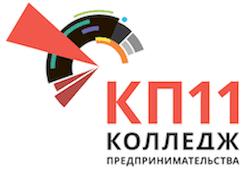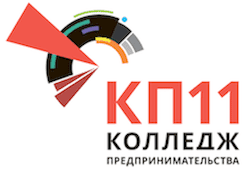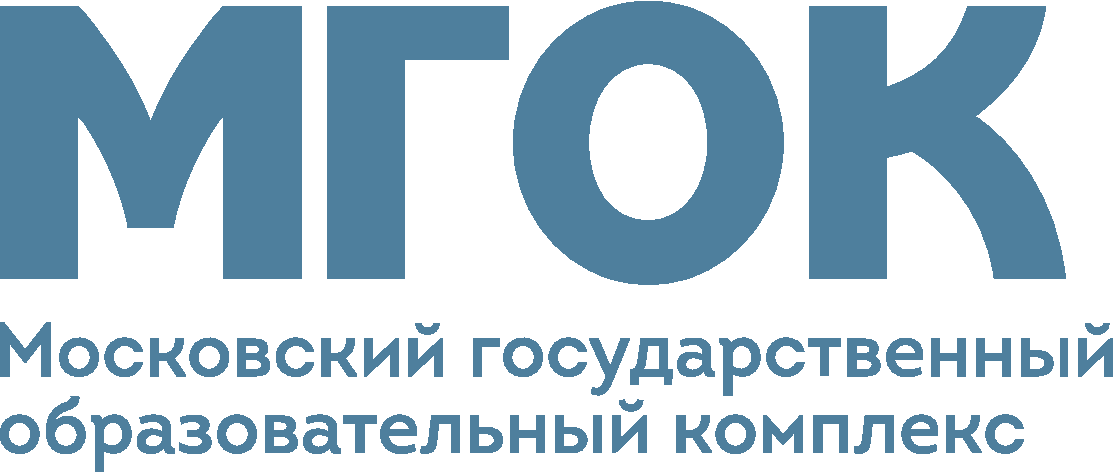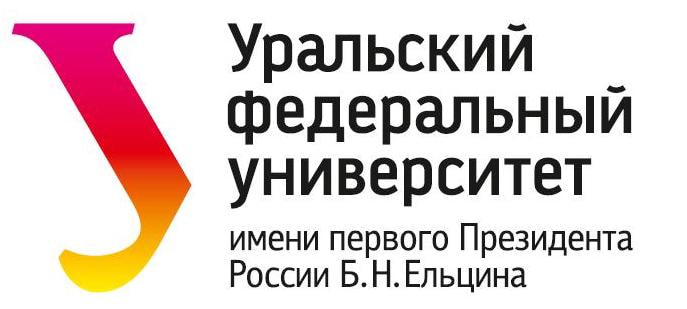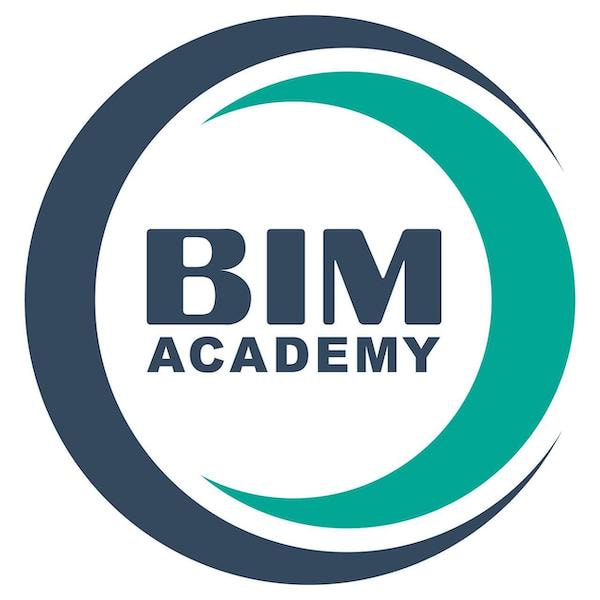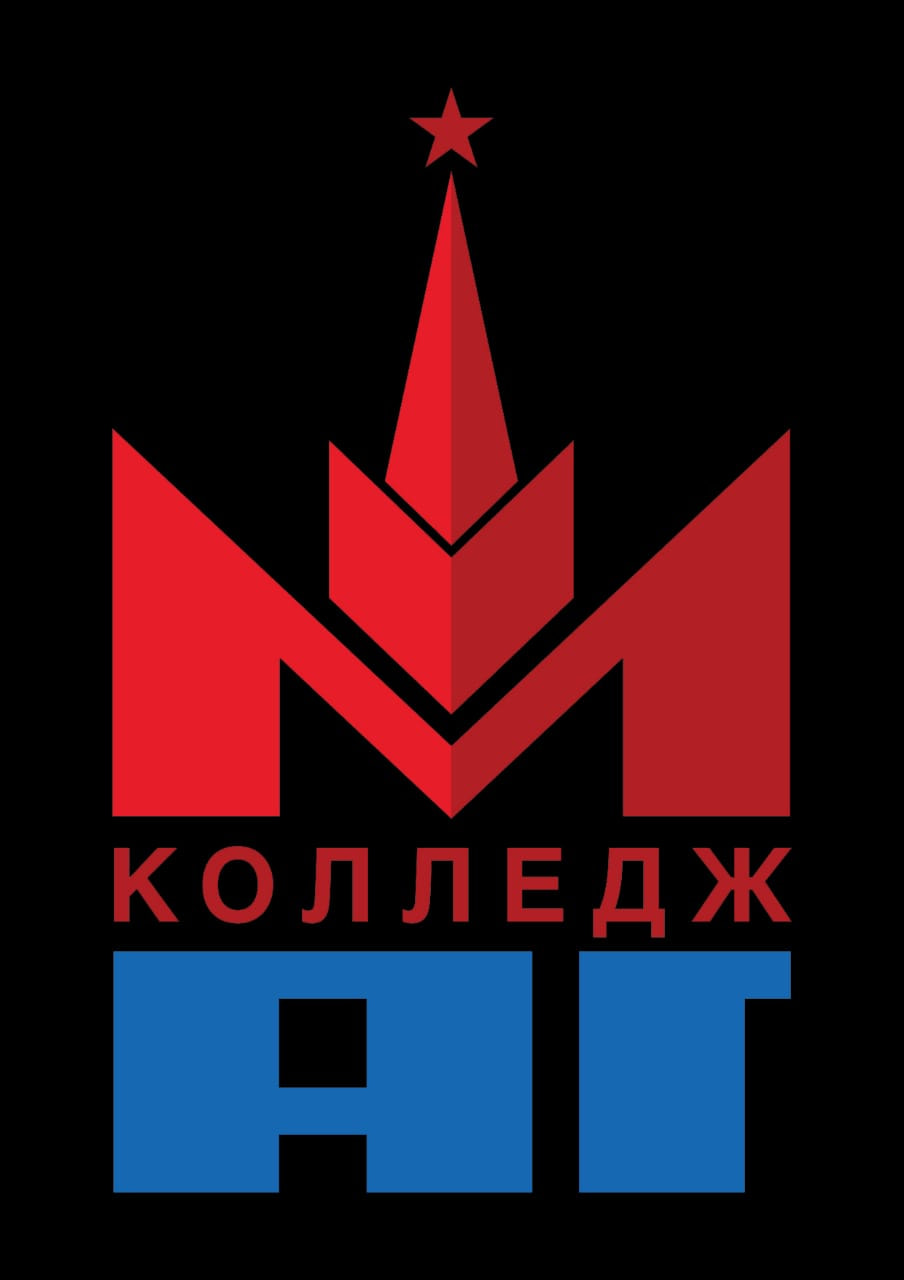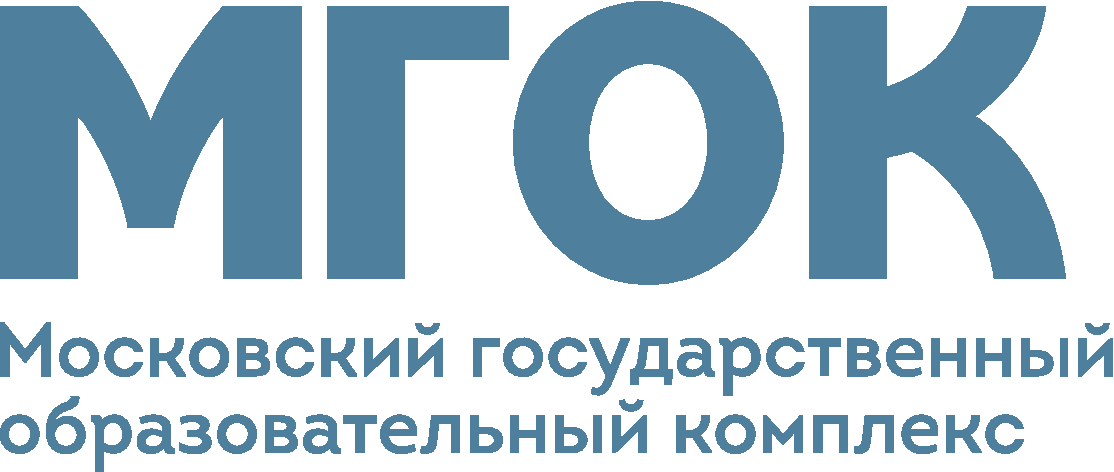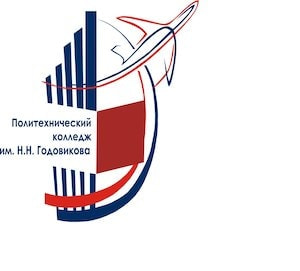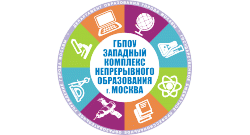Online participation
Future Skills Camp
Advanced Skill training for young professionals from around the world
SKILLS
Online participation
News
SKILLS
08/01/2020
136 participants from 16 countries were trained in Building Information Modeling (BIM), which took place within the Future Skills Camp from July 24 to August 1.
The purpose of the training was not only to introduce experts and participants to a young and promising field and to complete test projects but also to promote the skill in the international community through an open practice-oriented training.
Representatives of the educational community in the role of experts have learned the rules, documentation, and procedures of the WorldSkills competitions and assessed completed test projects of the participants. At the same time, the training allowed young specialists to try themselves as participants at the competitions, where test projects must be completed within a limited time.
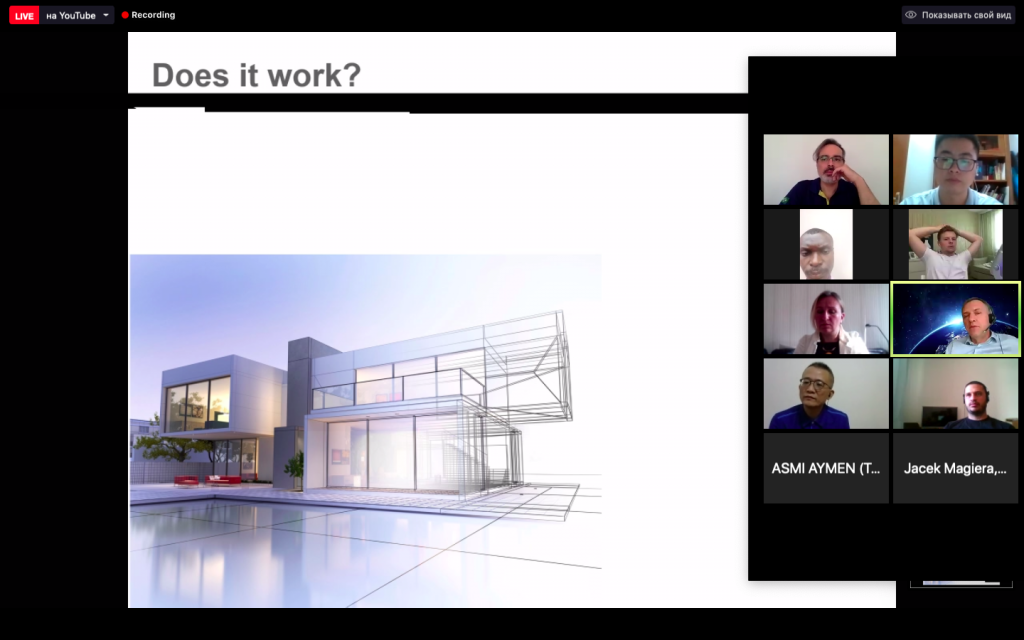
“136 students from 16 countries took part in the training on the Building Information Modeling (BIM) skill. Such a high interest from the participants confirmed the promising and demand for this direction. The hard and well-coordinated work of the organizers made it possible to hold the training at the highest level." - said the international Expert of the skill Alexey Andreev.
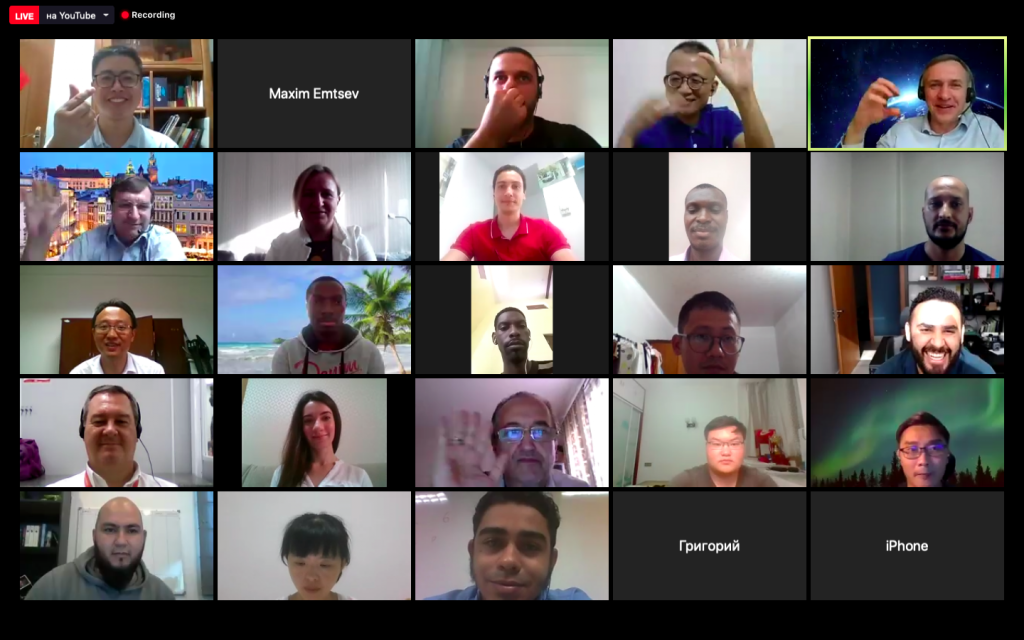
The training was supported by BIM Academy, Novosibirsk State University of Architecture, Design and Arts, Moscow College of Architecture and Urban Planning and College of Architecture, Design and Reengineering 26.
As a result of the training, the organizers received positive responses from all participants of the educational process. This result will allow us to successfully develop Building Information Modeling (BIM) in Russia and continue to promote it in the international community.
#BIM #BIMSkill #BIMSkillCamp #FutureSkills #WorldSkills #WorldSkillsRussia
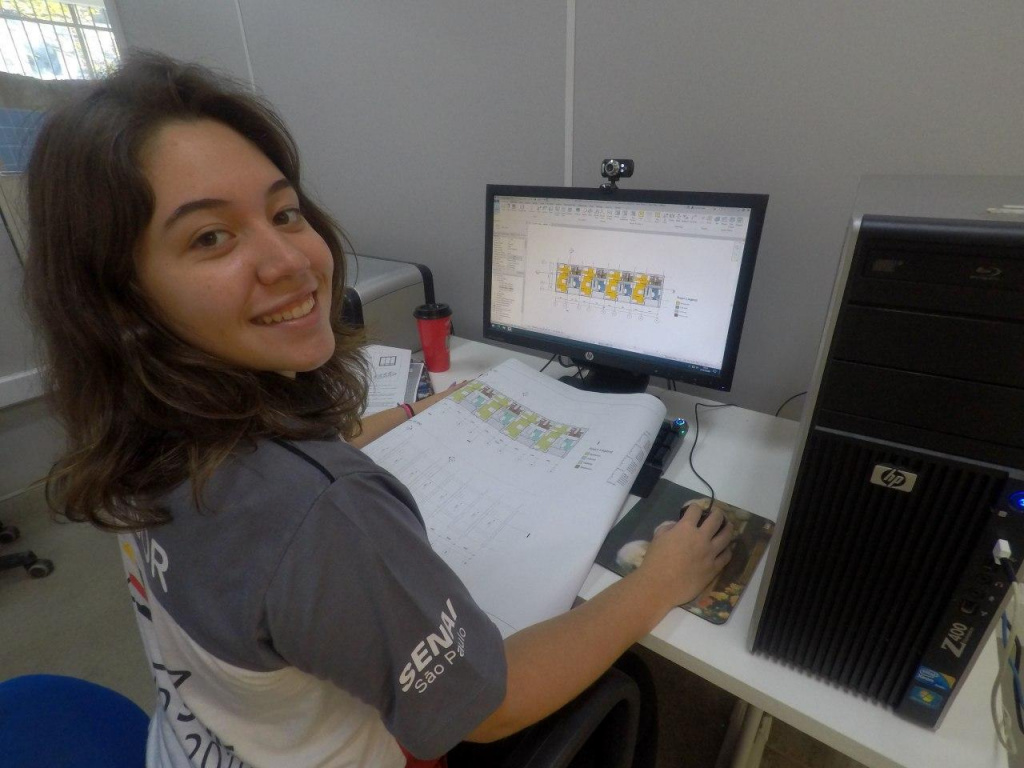
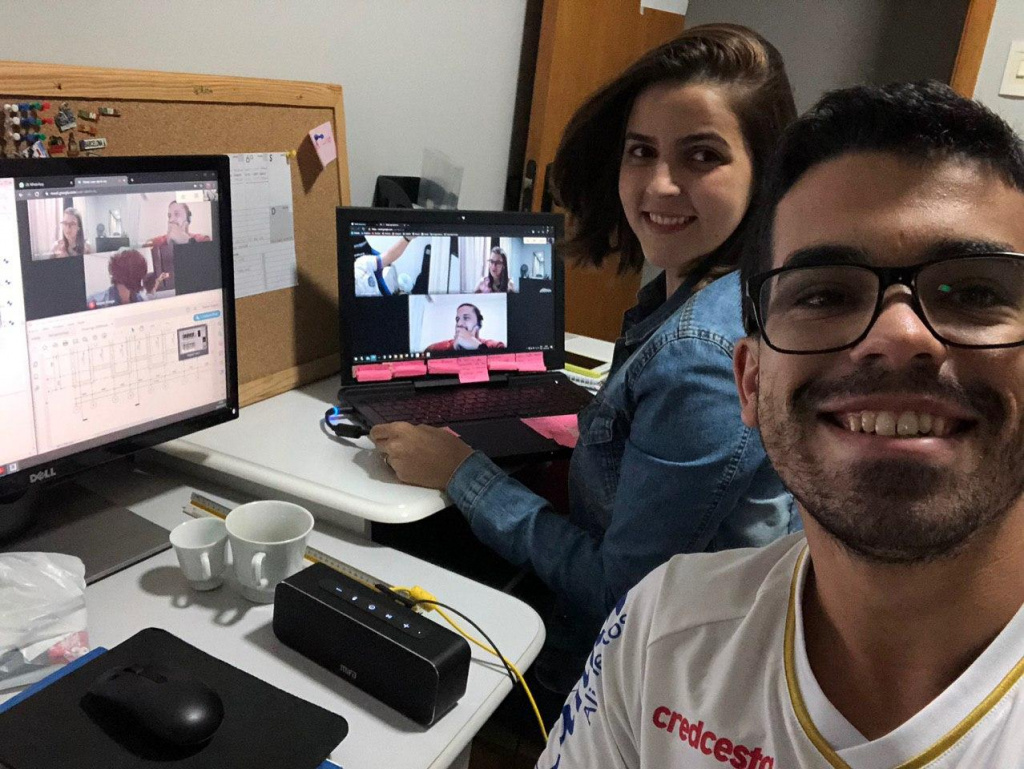
SKILLS
07/26/2020
From July 20 to July 26, training in the Drone Operating skill was held in hybrid format within the Future Skills Camp.
The training was taken part by more than 80 participants from Barbados, Brazil, Ecuador, Colombia, India, China, Portugal, Ghana, the UAE, Singapore, and South Africa. Among foreign participants were students, university professors, representatives of the industry, and fans of drones.
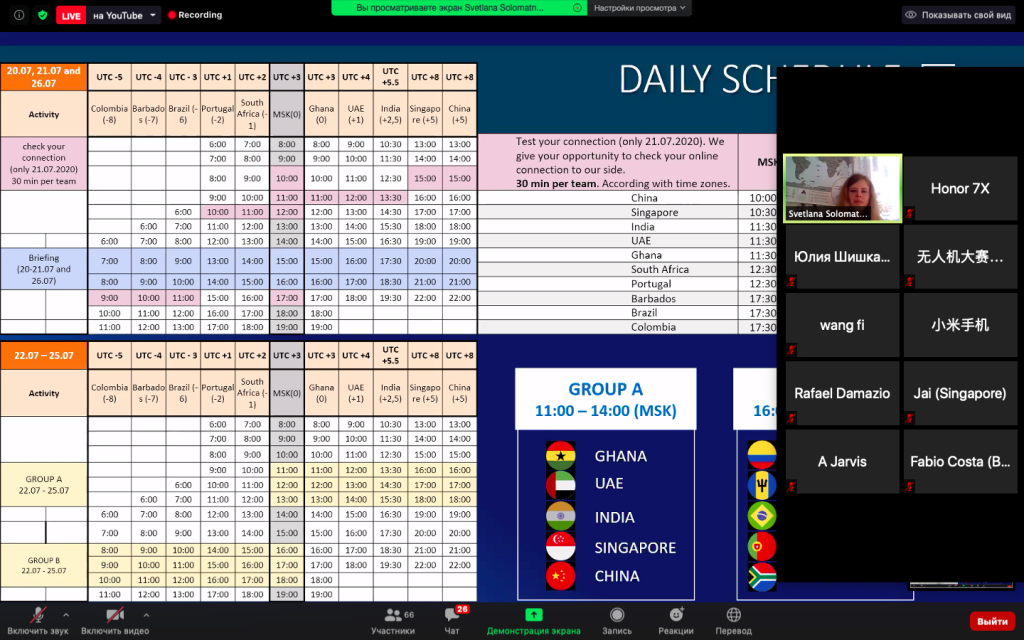
The training included an introductory part, during which Svetlana Solomatnikova, an International Expert, introduced the participants to the skill and told about its features and development in the field of UAV. The practical part consisted of theoretical and competitive parts. The training was conducted by specialists of the company Copter Express Technologies (COEX) on the basis of the Training Centre for Youth Innovative Creativity "Copter".
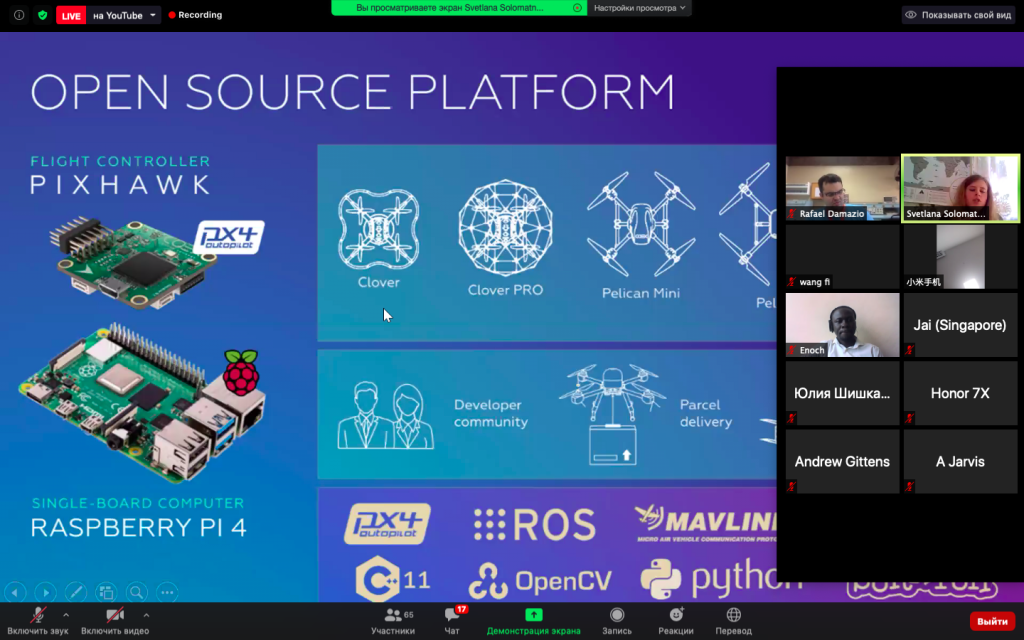
Coordinators, the winners and prize-winners of WorldSkills Russia competitions, Innopolis Open and NTI Contest in UAV Operation, were invited to support the teams completing the test project.
The participants learned not only about the features of the quadcopter, but also how to program an autonomous flight, collect and process data from the drone sensors. All these skills are necessary for a specialist in Future Skills, as automation will make it cheaper to perform work and expand the scope of application of flying drones. Even now, automation reduces the impact of the human factor while performing tasks from inventory of warehouses to street monitoring, which increases the relevance of application during the pandemic. We are waiting for participants who have passed the training at the national competitions and such international events as WorldSkills Asia and BRICS Future Skills Challenge.
The training was supported by COEX.
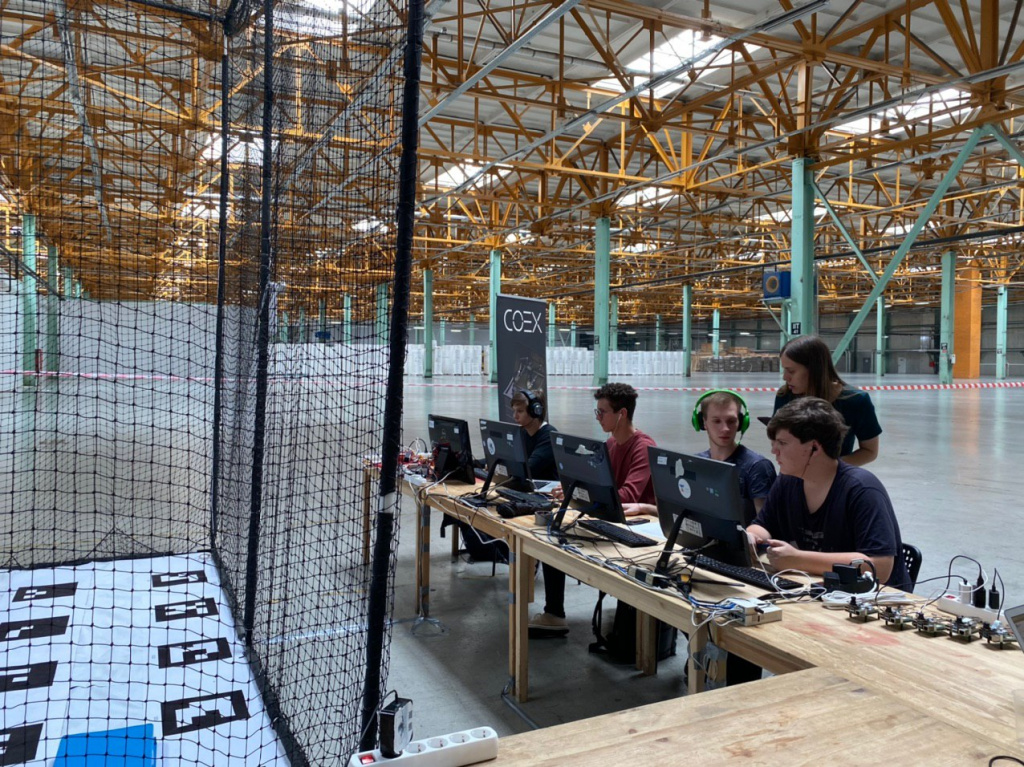
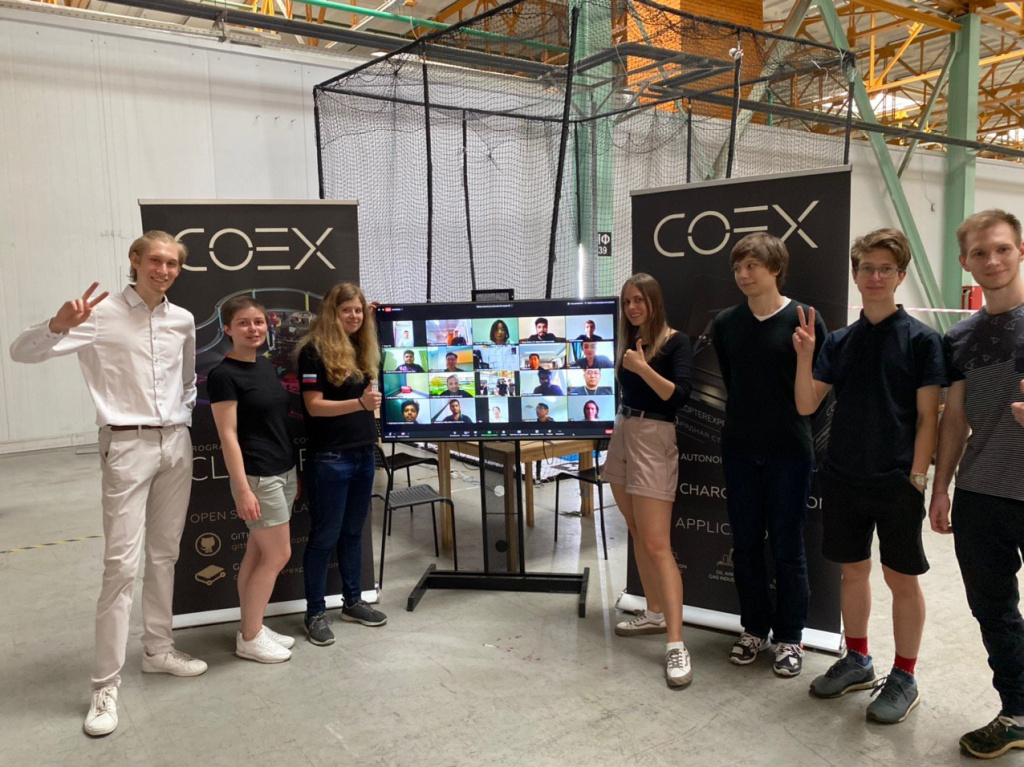
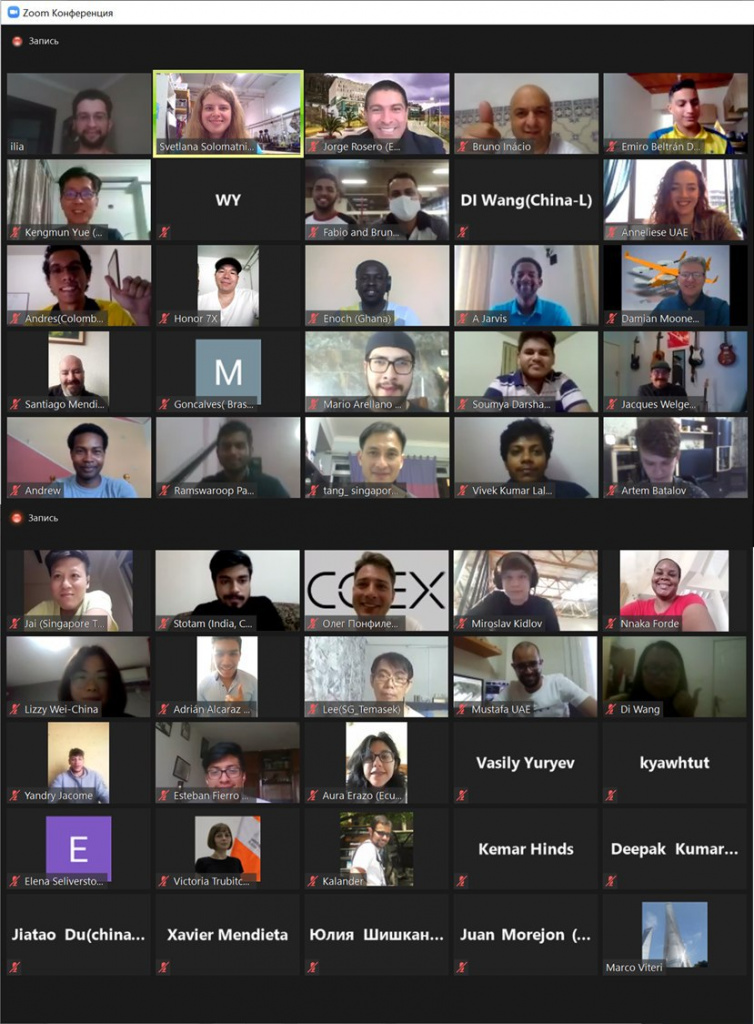
SKILLS
07/24/2020
Training in the Mobile Application Development skill was held from July 20 to July 24.
About 50 people from 16 countries took part in the training: Brazil, China, India, South Africa, Iran, Taiwan, Colombia, Ghana, Iran, Malaysia, the UAE, Germany, Barbados, Costa Rica, Ecuador, and Russia. Students were not only experts and participants with IT experience, but also delegates who were happy to dive into twists and turns of the skill in order to later hold the competitions in their countries.
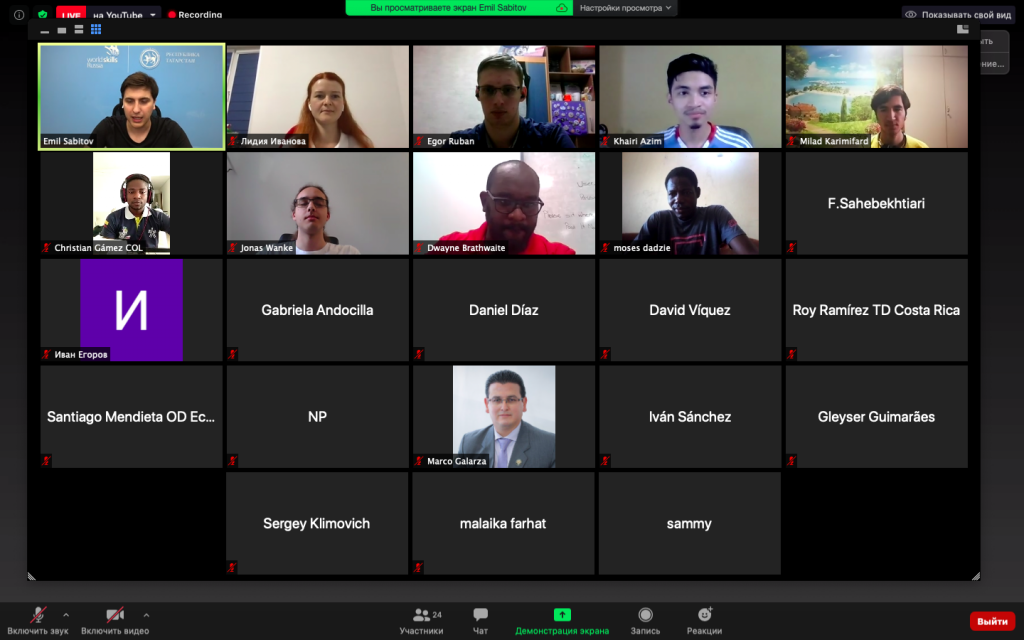
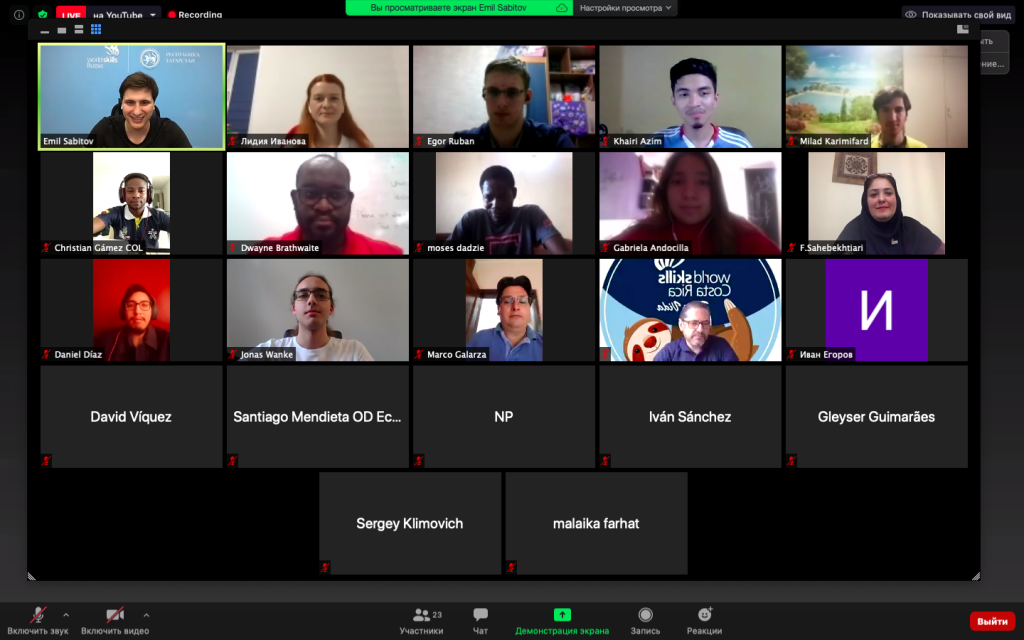
During the training, the team from Russia helped experts from other countries to learn more about the skill, and participants to gain new knowledge for the effective completion of the test project and their subsequent application in professional life. In addition, the participants had the opportunity to additionally train on real test projects of the skill in order to prepare for the world competition.
In addition to WorldSkills Russia, the training was supported by hakta, Kazan Technical College of Information Technology and Communications, Tomsk State University, and College of Entrepreneurship No. 11 in Moscow. The team from Russia, which has a lot of experience in holding competitions, managed to share the most useful and relevant information with the audience from other countries. As part of the training, Emil Sabitov, an International Expert, spoke about the features of the skill, twists, and turns of competitions and workshop layout. Lidia Ivanova, Head Trainer of the skill, shared the technical features of the skill, differences in platforms, and showed several short master classes on the implementation of a particular part of the test project.
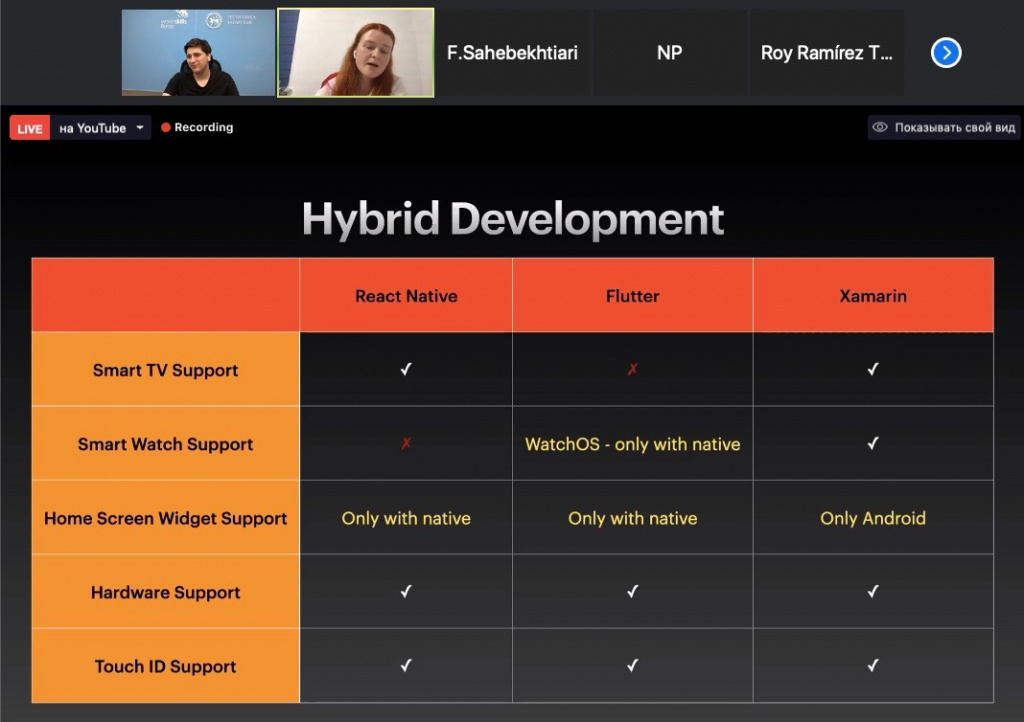
As a result of the training, representatives of the better part of the participating countries expressed their intention to hold competitions in Mobile Application Development in their countries, as well as to apply for the WorldSkills Shanghai 2021.
SKILLS
07/08/2020
From June 22 to July 9, 2020, Future Skills Camp 2020 hosted the first workshop Enterprise Information Systems Security in the remote format, organized by WorldSkills Russia (WSR), HSE Tikhonov Moscow Institute of Electronics and Mathematics (MIEM HSE) and Far Eastern Federal University (FEFU) with the support of InfoWatch Group and JSC InfoTeCS. Students from Brazil, Russia, India, China and South Africa took part in the workshop.
The main focus of the skill is the practice of using high-tech enterprise information security systems (DLP, VPN, IDS), ensuring the security of modern digital infrastructure
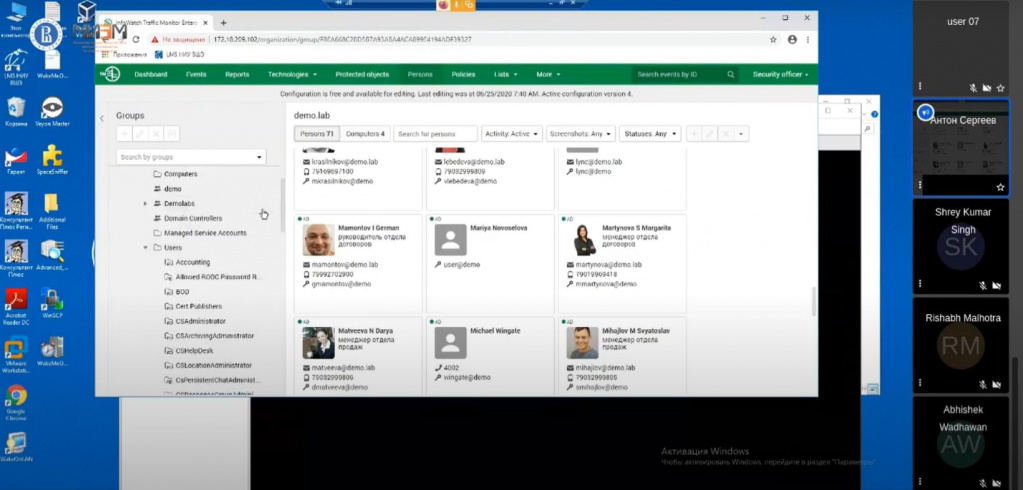 Training for participants, VPN/RDP connection, video service – meet.miem.hse.ru
Training for participants, VPN/RDP connection, video service – meet.miem.hse.ru
The workshop included two stages:
- Intensive training held by experts from InfoTeCS Academy and InfoWatch Groupon DLP and VPN technologies. Trainers from InfoTeCS Academy reviewed general issues, the current state and prospects of cryptography, and shared in details the principles of building and administering secure networks based on ViPNet Network Security products. Specialists from InfoWatch Group demonstrated technologies for fighting against data leaks and methods for identifying insiders using DLP Infowatch Traffic Monitor in practice.
- Future Skills Camp allows to evaluate the level of participants’ performance through the simulation of a security officer’s/ administrator’s working day.
Participants of Future Skills Camp were welcomed by Andrey Zarubin, Vice President of InfoWatch Group for Science and Education: " I am very happy to welcome the competitors and grateful WorldSkills for the invitation. I hope you will enjoy the new skill we are presenting today and join such a complex and exciting field of the digital era as an information security. We are constantly working together with experts in Russia to accumulate and expand the subjects of test projects for a relevant response to market challenges, improving test projects to meet the high requirements of the industry. On behalf of InfoWatch Group, I would like to state that we plan to support the pioneers of our skill in Asia by providing the necessary software, documentation and trainings.
The key partner of the event was MIEM HSE, one of the national leaders in advanced training in the field of enterprise information security.
"Aggregation of actual application practices and close contact with industrial partners is the basic principle of the MIEM in all industries. Over the years, in close contact with the expert community of “Enterprise Information Systems Security skill” with the industry and vendors, we have accumulated significant expertise and experience in the use of modern information security solutions. Our mission for the coming years is to transfer advanced technologies, practices and educational solutions to the national educational system of the Russian Federation, as well as to partner countries. We are launching similar activities through the HSE International Research and Methodology Center. We are happy that the export of Russian educational technologies is becoming a priority for various government agencies." - states Anton Sergeev, Chief Expert of Future Skills Camp, MIEM HSE Advisor, Certified Expert of WorldSkills Russia.
 Remote VPN/ RDP session for Experts, video service – meet.miem.hse.ru
Remote VPN/ RDP session for Experts, video service – meet.miem.hse.ru
MIEM HSE has two educational programs on information security, a basic department of InfoWatch Group, whose specialists-practitioners participate in the educational process and share their unique experience with students, as well as stands for system security of Industrial Internet of Things. The University has three Certified WorldSkills Russia Experts on Enterprise Information Security, which is the highest indicator among educational institutions in the Russian Federation.
As a part of Future Skills, MIEM HSE has provided its specialists and educational infrastructurefor the training. In addition, the training took place on the basis of a virtual room system (based on Jitsi), which is used in MIEM for conducting remote classes for up to 50 people.

- Enterprise Information Systems Security
- Manufacturing Team Challenge (Maker)
- Additive Manufacturing
- Internet of Things
- Mobile Application Development
- Drone Operating
- Robotic Welding
- Life-Cycle Management
- Digital Factory
- Machine Learning and Big Data
- Building Information Modelling (BIM)
- IT Software Solutions for Business
- Internet Marketing
- Industrial Design Technology
- Space Systems Engineering
- Digital Capabilities for Business
- Robot Systems Integration
- Quantum TechnoloGY
- Service Robotics
SKILLS
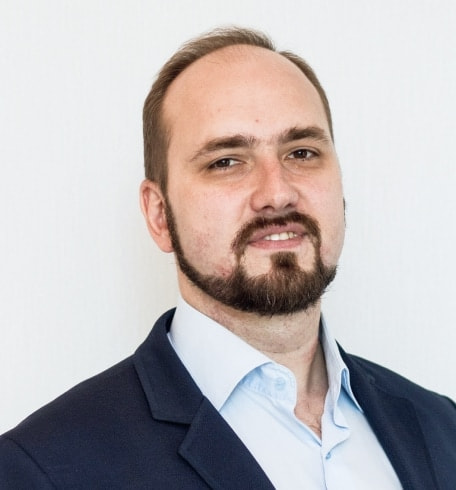
-
Brazil
-
India
-
China
-
Russia
-
South Africa
A key threat to corporate information security is data leakage due to employee actions. The causes of a leak can differ, ranging from negligence and carelessness to malicious intent.
A specialist in enterprise information systems security prevents any data leaks.
Where the skill is needed:
Currently- Protecting a company from information leaks caused by illegal actions of employees (insiders), whether intended or accidental
- Automatic leak detection and blocking systems that use artificial intelligence to predict user activity
- An individual 'security officer' for each employee to prevent leaks
SKILLS
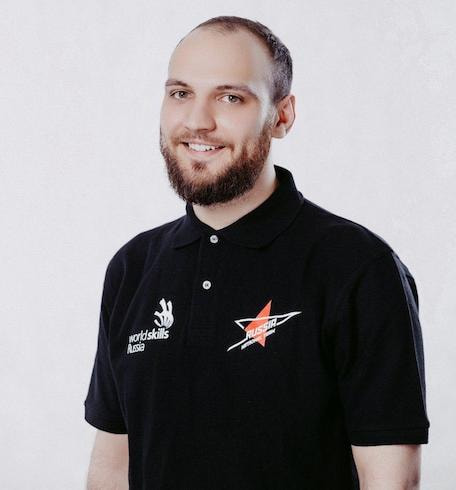
-
Brazil
-
China
-
Russia
-
Ecuador
-
South Africa
-
Japan
This skill involves concept creation, development and implementation of a manufacturing project within a productive and efficient team of specialists. Individual skills certainly have value in themselves, but the key to success of any project is the ability to work effectively as a team.
The challenge is to bring together a team of complementary specialists, for example, in project management, electronics, software engineering, machining and CAD engineering design. Winning a Manufacturing Team Challenge also depends on the availability of specialists with financial and managerial skills to control the timing, cost and quality of the test project. In addition to personal talents, team members should contribute to the overall effort, be clear about their strengths and weaknesses, possess interpersonal skills and be able to think outside their skill area.
SKILLS
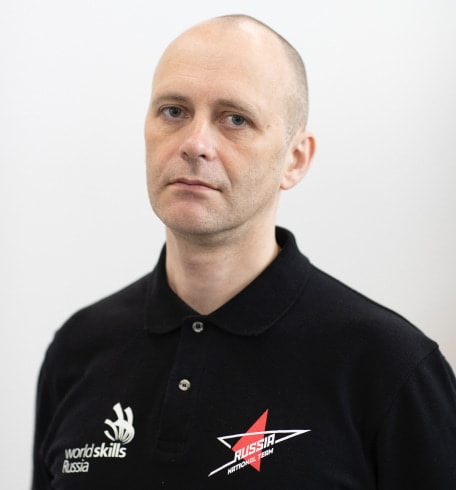
-
Australia
-
Armenia
-
Barbados
-
Belarus
-
Brazil
-
Ghana
-
India
-
China
-
Costa Rica
-
Poland
-
Russia
-
Romania
-
Singapore
-
Taiwan
-
South Africa
Development of manufacturing projects based on existing facilities. With direct design, the product is constructed from drawings. With reverse engineering, the specialist often deals only with parts of the product that are used to reconstruct the picture of the breakdown and creates a 3D model of the whole object.
Reverse engineering specialists are skilled in 3D scanning, computer modelling and material analysis.
Where the skill is needed:
Currently- aviation
- ships
- energy
- mining and transportation of mineral resources
- routine equipment repair
- research and development
- medicine
- engineering education
- generative design
- structural optimisation
- tissue engineering for the food industry and medicine
- research and development
- integration with IT processes
SKILLS
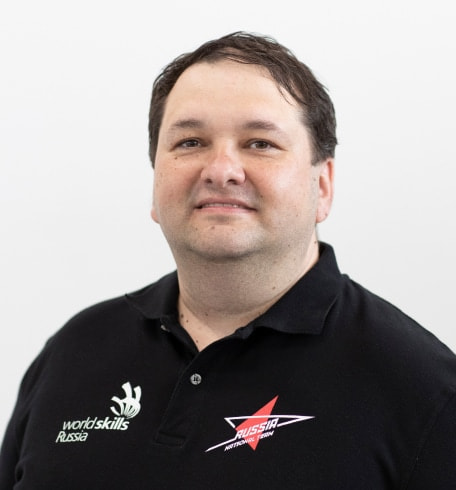
-
Armenia
-
Belarus
-
Brazil
-
Ghana
-
India
-
Kazakhstan
-
China
-
Costa Rica
-
Malaysia
-
Russia
-
Taiwan
-
Ecuador
-
South Africa
This skill allows interlinking a large variety of devices, even those located at a huge distance from one another, with a human, other devices and information systems.
A specialist who has mastered this skill creates distributed control systems for such devices using the internet and cloud technologies.
Where the skill is needed:
Currently- data collection in the agricultural sector
- smart city (data collection in public utilities, transport monitoring)
- data collection from equipment developers and incorporation into industrial manufacturing
- use at home (smart home)
- control of smart home systems by voice and gestures
- diagnosis and automatic maintenance
- safe traffic
- full-scale implementation of the internet of things in all spheres of human activity
SKILLS
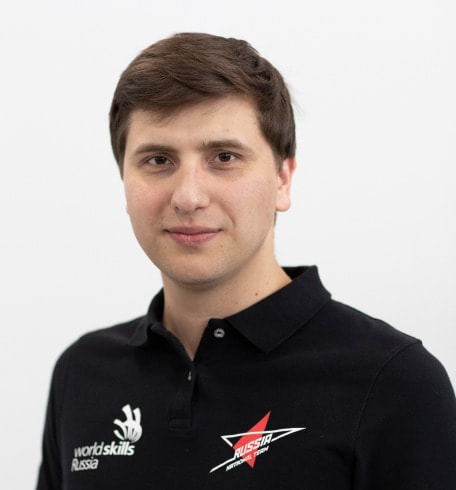
-
Barbados
-
Brazil
-
Ghana
-
Germany
-
India
-
Iran
-
China
-
Colombia
-
Costa Rica
-
Malaysia
-
UAE
-
Russia
-
Taiwan
-
Ecuador
-
South Africa
The goal of a specialist in mobile application development is to create a product that combines fault-free operation on the mobile operating platform, a user-friendly interface and multi-functionality.
Mobile applications make everyday life easier for users.
Where the skill is needed:
Currently- social networks and messengers
- media editors
- fitness applications
- business-user interaction
- smart watches
- car movement and refueling
- smart home
- health industry
- full-scale implementation of applications in all spheres of human activity
SKILLS
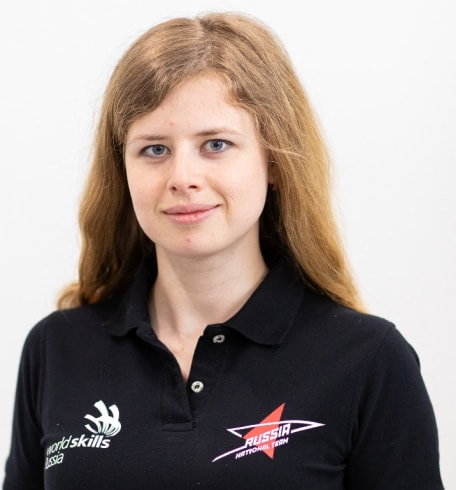
-
Barbados
-
Brazil
-
Ghana
-
India
-
China
-
Colombia
-
UAE
-
Portugal
-
Russia
-
Singapore
-
Taiwan
-
Ecuador
-
South Africa
Unmanned aerial vehicle (UAV) control, including remote piloting. UAV operation, error detection and troubleshooting.
Operation of UAVs requires various specialisations: technician, operator, external pilot, software engineer, engineer and others.
Where the skill is needed:
Currently- cartography
- monitoring traffic and safety in urban areas
- agriculture
- construction industry
- delivery of goods
- filming
- organizing performances
- education
- delivery of small shipments to hard-to-reach areas
- extinguishing fires in inaccessible areas
- Passenger transportation to hard-to-reach places
- Cargo transportation in the city and in remote places
- Swarms, drone show
- Passenger transportation in the city
- Tracking, protection
- Augmented Reality Projection
SKILLS
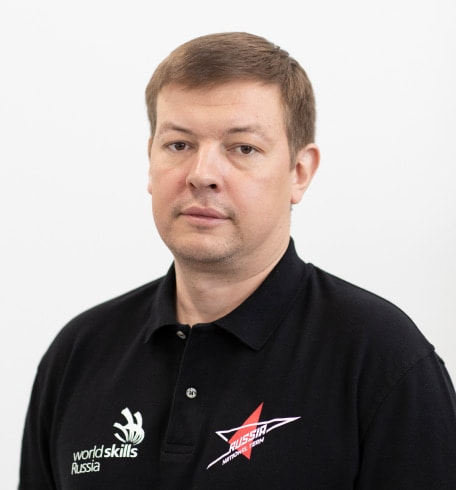
-
Brazil
-
Ghana
-
India
-
China
-
Russia
-
USA
-
Taiwan
Automated welding carried out by robotic manipulators and automatic welding equipment. The technology is widespread in the automotive and machine-building industries.
It is cost effective for a large number of repetitive tasks, in hazardous industries and critically important welding areas.
Where the skill is needed:
Currently- Manufacturing of cargo trailers, tanks, railroad cars, doors and other products involving welding
- Manufacture of smaller car parts, boat and ship hulls, steel structures of bridges and buildings
- Mobile robotic welding systems for field work
SKILLS

-
Brazil
-
Ghana
-
Russia
-
Ecuador
-
South Africa
A specialist with this skill sets up a unified communication process to manage a project at all stages – from concept development through design and manufacturing to sales, after-sales service and disposal.
Project lifecycle management helps reduce the time to market for a new product and improve plant efficiency.
Where the skill is needed:
Currently- different branches of the economy (mechanical engineering, heavy industry, development, science organization
- certain stages of the manufacturing processes (idea creation, system design, product specification management, integration of digital devices and software, after-sales service)
- introduction of digital design technologies
- creation of digital twins and a PLM system for interactive lifecycle management
- lifecycle management is implemented in a wide variety of industries and areas of manufacture
- manufacturers will be able to modify, refine and transform product parameters in real time at all lifecycle stages based on feedback
- the customer will participate in product development together with the manufacturers through adaptive lifecycle management
SKILLS

-
Barbados
-
Brazil
-
India
-
China
-
Costa Rica
-
Russia
-
South Africa
This skill involves the use of digital models in designing and operating manufacturing systems. Furthermore, not only the products themselves but also the manufacturing tools, production and logistics processes are displayed as digital models.
The use of digital models enhances equipment efficiency through the introduction of artificial intelligence, cloud technology, industrial internet of things, tools for working with data arrays into the process.
Where the skill is needed:
Currently- Industrial production processes
- Possibility of customized order of individual products and small series
- The widespread use of digital production will lead to quick and high-quality ordering of individual customized products at a selected time interval
SKILLS
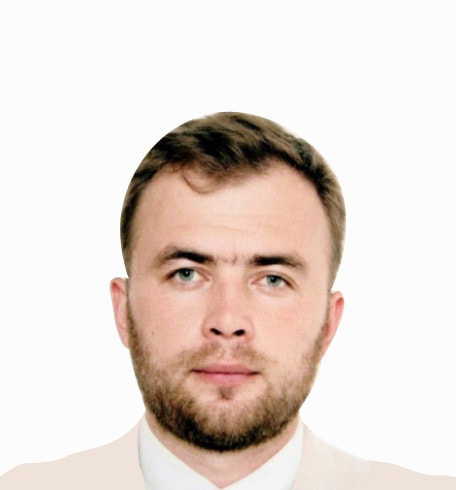
-
Brazil
-
Ghana
-
India
-
Kenya
-
China
-
Russia
-
South Africa
This skill implies the ability to organize the recognition, analysis and processing of large amounts of data, including unstructured data, without the use of clear deterministic algorithms. The skill allows solving a variety of practical problems.
And thanks to the extensive experience in machine learning accumulated by the industry and new tools, it is becoming possible to predict the development of a problem and use graphics to model it.
Where the skill is needed:
Currently- unmanned motor vehicles
- speech recognition
- search engines
- personalised education
- personalised medicine
- total business process digitalisation
SKILLS
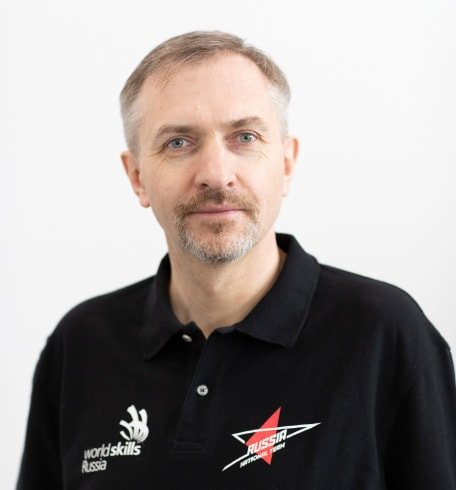
-
Algeria
-
Barbados
-
Belarus
-
Brazil
-
Ghana
-
China
-
Costa Rica
-
Poland
-
Russia
-
Singapore
-
Taiwan
-
Tunisia
-
Uzbekistan
-
Ecuador
-
South Africa
Experts develop an information model of a building, create interconnected drawings on its basis and enable data exchange between all building process participants. Information modelling involves the production and management of information about the construction project at all stages. The skill allows testing the solution before its implementation, reducing the construction cost and ensuring its quality through end-to-end management of the building lifecycle at all stages – from development to disposal.
Where the skill is needed:
Currently- Design of capital construction projects.
- Operation of buildings and structures (asset management, energy efficiency)
- Creating a digital twin of objects and structures (smart city)
SKILLS
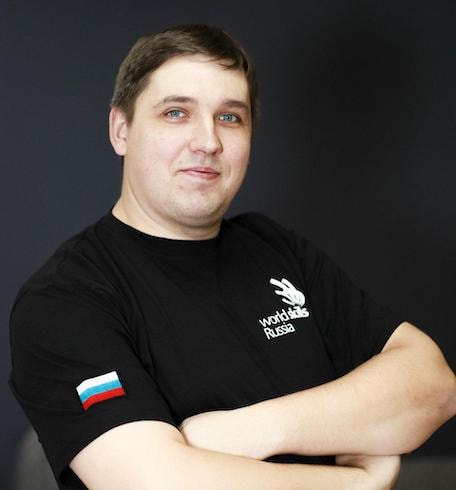
-
Barbados
-
Brazil
-
Ghana
-
India
-
Iran
-
China
-
Colombia
-
Costa Rica
-
Malaysia
-
Poland
-
Russia
-
Taiwan
-
South Africa
-
Japan
The development of software solutions to improve business performance covers numerous skills and disciplines. The key points are the dynamic nature of the industry and the ability to keep pace with ongoing changes. Professionals in the sphere of software solutions always collaborate closely with clients to modify existing systems or create new ones. They may adapt standard software and integrate it into the existing systems. They often work within a team of professional software engineers responsible for formulating requirements, system analysis and design, development, testing, training and deployment as well as maintenance of commercial software systems.
SKILLS

-
Brazil
-
India
-
Russia
-
Ecuador
-
South Africa
Internet marketing as well as classic marketing is a type of activity aimed at satisfying needs by way of exchange. In internet marketing, user requests, such as applications, orders or expression of interest in a type of goods or services as well as money in the form of online payments, are traded for what the users may obtain directly on the internet – that is, information, goods or services.
Internet marketing is part of e-commerce. It is also referred to as online marketing. It may include such aspects as internet integration, information managment, PR, customer support service and sales.
SKILLS

-
Brazil
-
Ghana
-
Iran
-
China
-
Russia
-
Tunisia
-
Uzbekistan
-
Ecuador
Prototyping of household appliances, manufacturing units and their interfaces, land and air transport (including motor vehicles, planes, trains), a variety of equipment.
The skill defines the functional and aesthetic qualities of manufacturing and connects manufacturability with elements of art, science and marketing.
Where the skill is needed:
Currently- Creation of comfortable and aesthetically pleasing items that meet market requirements, such as manufacturability, cost and operating conditions
- Active introduction of digital technologies and 3D prototyping. Ubiquitous use of virtual and augmented reality tools for product design and demonstration
- There will be no difference between industrial design, engineering design and the game industry
SKILLS
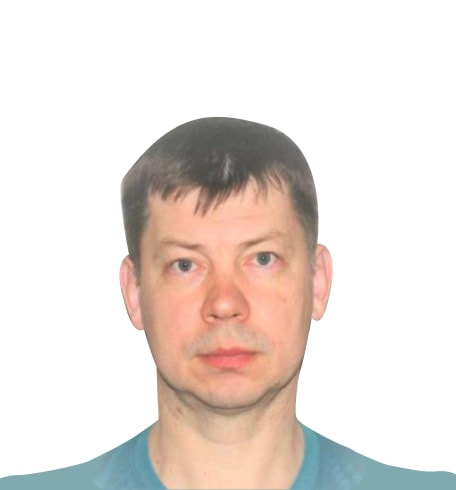
-
India
-
Ireland
-
Kazakhstan
-
Colombia
-
Russia
-
Ecuador
Any space mission, including those related to the development, launch and piloting of spacecraft, requires strong engineering skills.
A space systems engineer performs the design, numerical modeling, programming and assembly of a functional model of an Earth observation satellite and is also responsible for ground testing of the model created.
Where the skill is needed:
Currently- digital modelling of air and spacecraft behaviour under different conditions
- modelling the interaction of air and spacecraft components under different external impacts
- manufacturing of airplanes, rockets, jet and propeller engines, spacecraft and spare parts for these systems
- use of satellite data for weather forecasting, TV broadcasting, agricultural analysis
- disposal of toxic waste in space
- manufacturing of high-quality crystals under weightless conditions
- extraction of mineral resources on the Moon and asteroids
- creation of low-cost technologies for transporting goods and people into orbit (a space elevator from the Earth's surface)
SKILLS

-
Barbados
-
Brazil
-
Ghana
-
Russia
-
South Africa
The main concept of Skill "Digital Capabilities for Business" is the integration of solutions from Skill 09 "IT Software Solutions for Business" with modern technologies that are used in market solutions. The competence covers such skills of participants as knowledge of various technologies, the ability to use them for solving applied problems, as well as the ability to integrate these solutions into classic business software.
Skill "Digital Capabilities for Business" involves teams of 3 people. Within several sessions participants are invited to implement a business application core, develop a mobile application, and finally integrate the created "core" with modern technologies. Competition is as close to reality as possible - at the tasks level, hardware solutions provided by the organizers for solving certain sessions, as well as organizing work within the competence.
SKILLS
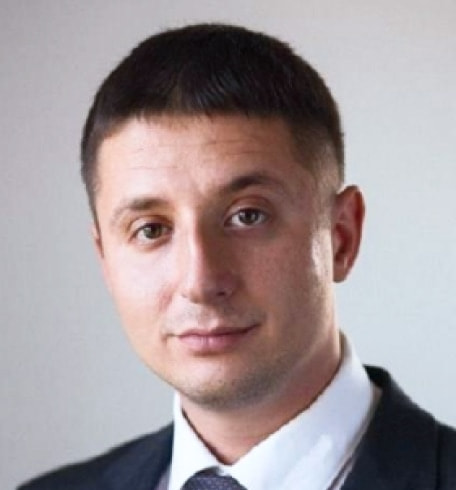
-
Armenia
-
Barbados
-
Belgium
-
Brazil
-
India
-
Iran
-
Kazakhstan
-
Costa Rica
-
Russia
-
Taiwan
-
Ecuador
-
South Africa
-
Japan
The skill that allows programming, equipping and controlling industrial robots to perform automated manufacturing tasks.
Robotisation offers an advantage in the face of frequently changing manufacturing processes. For example, it requires less investment as it allows the use of standard industrial robots for various tasks.
Currently- Automation of welding, machine maintenance, machining, palletising of the finished product etc. The aim is to increase manufacturing volumes and reduce manufacturing costs
- Robotic clusters of machines for a group of manufacturing operations without human intervention
- Fully robotic manufacturing with minimal human involvement, a human only controls the entire process
SKILLS
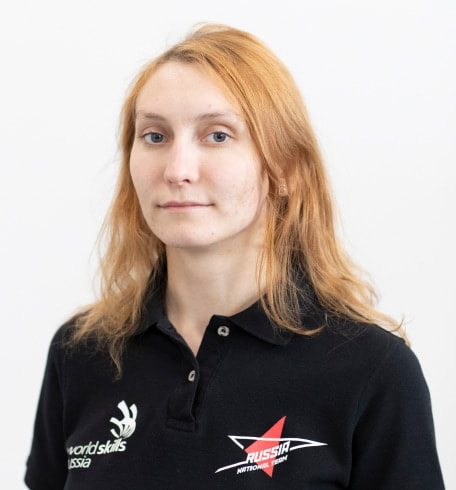
-
Brazil
-
Russia
Quantum encryption is used to protect the information, as the security of data transmission is guaranteed by the fundamental laws of physics.
Quantum technologies allow instantly detecting compromised distribution of key documents in a communication line, so users can be certain that an intruder will not get access to their information.
Where the skill is needed:
Currently- banking industry
- protecting critical state information
- complex solutions for the banking sector
- for large companies in the public sector
- protection of each user's personal data
- use of quantum encryption in mobile devices and transport
SKILLS

-
Barbados
-
Kazakhstan
-
Costa Rica
-
Malaysia
-
Russia
-
Taiwan
-
South Africa
Service robot operation is the process of administration, configuration and repair of the robot. A key result of the competition is a correctly operating remote-controlled robot. In the near future we will be surrounded by a variety of domestic robots that we should already be able to repair and adjust.
SKILLS
Future Skills is one of the priority initiatives of WorldSkills Russia developed for training specialists in professions with good prospects on the labour market. The development of this direction is governed by global changes in the field of technology and manufacturing. The demand for professions in this field is growing every year; therefore, mass skill development will become a challenge for education and industry very soon. This objective is addressed by the Future Skills block, an advanced skills development programme for high-tech manufacturing and a transforming economy.
Since 2015 WorldSkills Russia has been conducting cutting-edge research to develop skills in the Future Skills professions and testing new skills, organizing competitions with innovative formats and developing educational programmes based on the WorldSkills standards with an aim of subsequent international recognition.
The Future Skills Camp is a series of joint training sessions for competitors as well as sessions for professional skill experts where participants practice and improve their skills. The training sessions are aimed at further establishment of promising skills, developing technology and introducing a new profession standard into the labour market. By holding the Future Skills Camp, we aim not only to highlight the importance of professions that are in transformation or entirely new but also to build networks between countries in the field of vocational education.
Global challenges contribute to the development of a new and unique stage in the vocational education system, allowing for innovative solutions and approaches to training, competition and independent evaluation in a long-distance format as well as meeting the economy's need for growth of distributed jobs.
The distant Future Skills Camp training will allow testing the innovative format, launching new digital services and platforms with the prospect of further use in any environment and attracting as many competitors as possible from all over the world, giving them an opportunity to get better acquainted with the skills within the Future Skills set. The participating countries will then be able to introduce the Future Skills into their education system and national competitions. The demand for distant formats will increase, and the objective of WorldSkills Russia is to help the vocational education system function in any environment.
Future Skills Camp runs from 23 June to 31 August. The experts introduce each skill in detail at the beginning of the training, after that the participants receive test projects simultaneously on a special platform and start executing them according to the time zone of the participating country. The completed test projects will be assessed by experts in a distant format. All participants will receive the Future Skills Camp e-certificates after the training. The participants who have completed test project will receive a skills passport.
The training sessions will be attended by competitors and experts from Algeria, Barbados, Belarus, Brazil, Ghana, India, Iran, Kazakhstan, Kenya, Kyrgyzstan, China, Colombia, Malaysia, Poland, Portugal, Russia, Singapore, the USA, Taiwan, Tunisia, Uzbekistan, Ukraine, France, Ecuador, South Africa, Japan, as well as other countries interested in the development and development of promising professions.




















